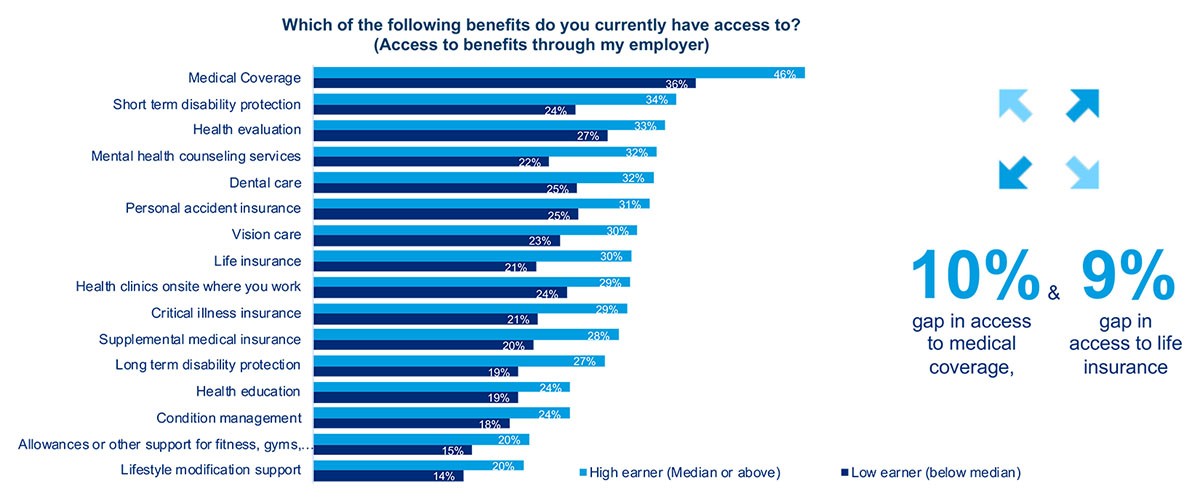
Tailored Benefits: Elevating Employee Well-Being
Personalized employee benefits are emerging as a crucial component of modern workplace strategies, prioritizing individual needs and fostering a supportive work environment. In this article, we’ll explore the significance of personalized employee benefits and their impact on enhancing overall employee well-being.
The Shift to Personalization in the Workplace
In today’s diverse and dynamic workplaces, the one-size-fits-all approach to employee benefits is giving way to a more personalized model. Recognizing the unique needs and preferences of individual employees, organizations are tailoring their benefits packages to provide a more meaningful and relevant experience for each member of their workforce.
Health and Wellness Customization
One of the key areas of personalization in employee benefits is health and wellness. Rather than offering a standard health plan, employers are providing options that allow employees to choose the coverage that aligns with their specific health requirements. This might include personalized wellness programs, mental health support, and flexible healthcare spending accounts.
Flexible Work Arrangements
In the era of remote and flexible work, personalized employee benefits extend to accommodating diverse work arrangements. Companies are offering flexible scheduling, remote work options, and compressed workweeks to cater to the individual needs and preferences of employees. This flexibility promotes work-life balance and enhances job satisfaction.
Financial Well-Being Support
Recognizing the importance of financial well-being, personalized benefits include support for employees’ financial goals. This may involve retirement planning assistance, personalized financial counseling, or employer contributions to savings plans. Tailored financial benefits contribute to employees feeling more secure and valued.
Professional Development Opportunities
Personalized employee benefits extend beyond traditional offerings to include professional development opportunities. Companies are investing in personalized training programs, skill development initiatives, and educational benefits. This not only enhances employees’ career growth but also aligns with their individual aspirations.
Recognition and Rewards Programs
Acknowledging individual contributions is a vital aspect of personalized benefits. Companies are implementing recognition and rewards programs that go beyond standard incentives. Personalized recognition may include tailored rewards, personalized milestones, and acknowledgment of unique skills and achievements, fostering a culture of appreciation.
Customized Leave Policies
Recognizing that employees have varying needs for time off, personalized leave policies are becoming more prevalent. This may include options for parental leave, caregiver support, or additional days off for personal milestones. Customized leave policies demonstrate a commitment to understanding and accommodating the diverse needs of the workforce.
Technology Solutions for Personalization
Advancements in HR technology play a significant role in enabling personalized employee benefits. Employers are leveraging sophisticated HR platforms to gather and analyze data, allowing them to tailor benefits packages based on individual preferences, life stages, and demographic factors. This technology-driven approach ensures a more precise alignment with employees’ needs.
Employee Surveys and Feedback Loops
To truly understand the diverse needs of their workforce, companies are implementing regular employee surveys and feedback loops. This continuous feedback mechanism enables employers to stay informed about changing preferences, emerging needs, and areas where further personalization of benefits may be necessary.
The Positive Impact on Employee Well-Being
The shift towards personalized employee benefits isn’t just a strategic business decision; it has a profound impact on employee well-being. When employees feel that their individual needs are recognized and addressed, there is a notable increase in job satisfaction, engagement, and overall morale. Personalized benefits contribute to a workplace culture that values and prioritizes the well-being of its employees.
In conclusion, the era of personalized employee benefits marks a positive evolution in the employer-employee relationship. By recognizing and addressing the unique needs of each employee, organizations can create a more supportive and engaging work environment. To explore the world of personalized employee benefits, visit Personalized Employee Benefits.
